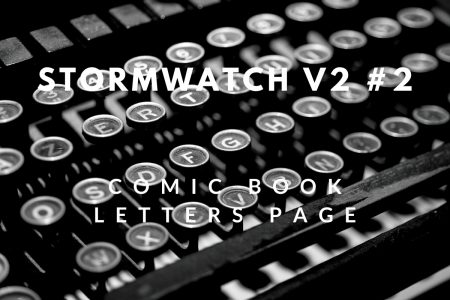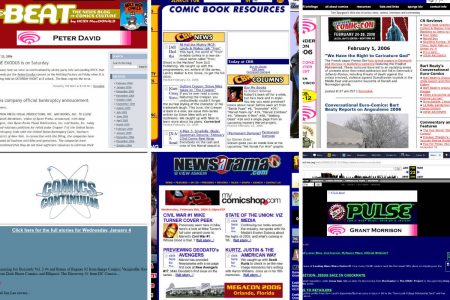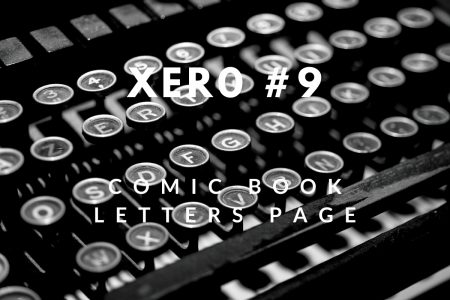I never read any CrossGen comics when they came out. I didn’t pay attention to the many press releases concerning their comics and was only dimly aware about the trouble they had and the eventual bankruptcy. This was primarily due to a lack of interest on my part in their product, even if I applauded the intention behind it. It was another group of comics that I couldn’t afford to try, so I ignored them.
Last weekend, while rummaging through a bookshop, I came across the Edge (the compendia, not the guitarist; although I do see famous people walking the streets of London all the bloody time). This was an anthology collecting a selection of CrossGen comics, providing a flavour of their stories. They were priced at £2 each. Well, how could I resist around 200 pages of comics for the price of single comic today? So, I picked up Edge volumes #1–8, collecting a few comics that I might have been interested in the first time round, such as Ruse and Way of the Rat. (For those of you in the London area who want to take advantage of the offer, it was Bookworld in the Wimbledon Shopping Centre.) It made me wonder about the CrossGen story, as I tried to explain to my girlfriend why I had bought a huge stack of books home. So I did some searching and here is some of what I found.
CrossGen CEO and publisher, Mark Alessi, launched the company in May 2000 with the intention of becoming the number one publisher of comic books. One year later, they were 5th largest; by 2003, they were number 4; in 2004, the company collapsed, painfully and loudly. They filed for bankruptcy, at over $3M in debt in October 2004, and Disney got their assets for $1M a short time later.
CrossGen was trying to break into new markets with different innovations, including an education programme, a comic book on DVD, a regular and thorough trade paperback programme and a covering of genres outside of super-hero, including fantasy, sword & sourcery, sci-fi, space opera, detective fiction and wuxia. Personally, few of the titles sounded appealing to me, the majority of the talent producing it were not people whose work I would seek out, and the idea of a new universe (not new ideas, mind you; even though it was denied, there was the concept of a shared universe inherent in CrossGen books) made me balk at trying any of the books. Also, there was the sheer amount of titles they were pumping out. Instead of starting small and building on success, it seemed as if they were jumping in at the deep end, confident of success.
Reading about it now, I feel slightly guilty for picking up the books so cheap, as it looks like a lot of good people producing the work lost money and even their homes when they had to foreclose on missed mortgage payments, after Alessi relocated everyone down to Tampa, Florida, to work in the ‘compound’. Part of the problem was book shops returning the trades, causing cash-flow problems, and the books I’ve purchased must have come from there. Should I feel guilty, or should I just enjoy the entertainment, as was the original intention? Even though the reviews will be out of date, I’ll let you know what I think of them soon. What I do feel is sorry for the people who lost out and pity for the good idea that CrossGen was that didn’t work out.
Some worthwhile links about the story of CrossGen:
A fascinating and in-depth analysis by Chris Fluit, which I would urge you to read if you know as little as I did.
An overview of the revelation of financial problems by unpaid inkers at CrossGen at Newsarama.
This article sees Mark Alessi responding to these leaks, while this Permanent Damage sees Steven Grant sift through the response for the truth.
An informative conversation between Alan David Doane & Chris Allen.
The Comic Journal had an article about it all, which can be found here.
Finally, Augie gives a sympathetic overview in this article.
Isn’t it amazing what you can find on the internet?
Digression: it’s sad to see Clandestine Chum, Logan, is going on hiatus for a while. Hopefully, he’ll still be writing his Loose Staples column over at CBG. Come back soon, L.





CrossGen did some interesting stuff, but the two best things it did were at the end, when they gave up the idea of a shared universe. El Cazador and Kiss Kiss Bang Bang had HUGE potential, and now they’re dead. I was also very wary about the whole shared universe thing, so I didn’t get into it, but those two books were good.